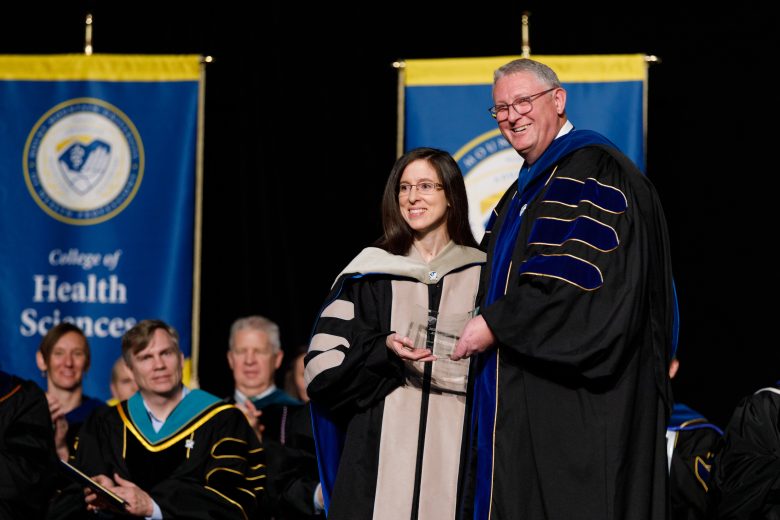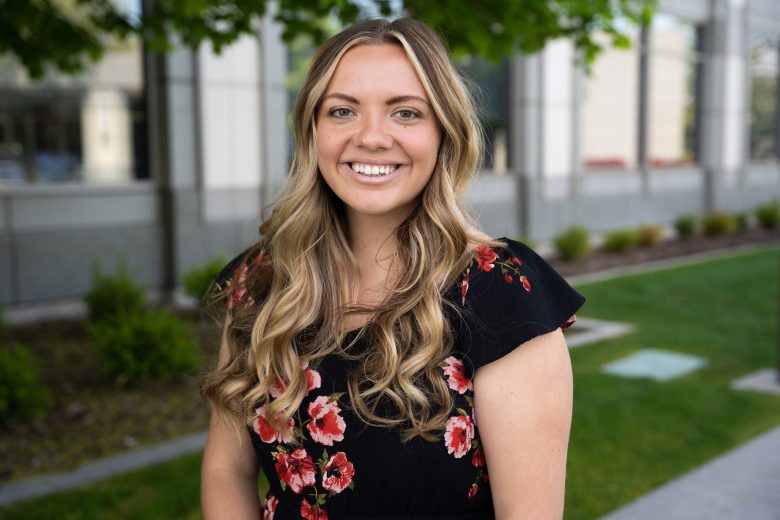Many people have an innate desire to help struggling individuals, and Dr. Sharon Todd appreciates our tendency to look outward when it comes to the topic of mental health. With that in mind, the Rocky Mountain University (RMU) assistant professor of counseling has a message to share during National Suicide Prevention Week (Sept. 8-15).
Her main emphasis: It’s time to move our personal wellbeing up our priority lists.
“We don’t make ourselves a priority, and prioritize our self-care,” said Todd, who practices as a Licensed Professional Clinical Counselor in Kentucky along with teaching remotely for RMU. “We have to take care of ourselves because we can’t pour from an empty cup.”
5 Tips for Mental Health
Todd’s shared her top five tips on how to improve our own mental health (note: please see the accompanying list of suicide prevention tips):
1. Prioritize Self-Care
Finding what works for you is key. Try picking up a new hobby or getting back to doing something you previously enjoyed. Whether it’s crocheting, playing pickle ball, reading romance novels, outdoor cooking, or whatever, take the time to do things that bring you joy and relaxation.
“Be sure the activity is legal, helpful, and isn’t harmful to yourself or others,” said Dr. Todd.
Physical self-care plays a vital role in mental health. Movement is helpful in myriad ways, any type of movement. If running isn’t your thing, consider going for a walk, dancing, or stretching. Make sure to get adequate rest, eat a balanced diet, and avoid excessive alcohol or drug use.
2. Make Connections
People often think of phones as being the best way to connect, but it’s important to tilt our necks up away from our screens and seek personal human interaction. Creating real connections is integral to wellbeing. The American Foundation for Suicide Prevention’s annual suicide prevention campaign is themed, “Talk Away the Dark.” Friendships and meaningful relationships can foster direct conversations that can save lives. (Click here to watch the AFSP’s public service announcement.)
Todd encourages social interactions along with nurturing relationships and quality time. “Having that strong support network and family increases mood and resilience,” she said. “Strong social connections are vital for mental well-being.”
3. Manage Stress Effectively
In Todd’s experience, she’s noticed that people often wait until they’re at their breaking point before calling a counselor in emergency situations — or worse. Chronic stress negatively impacts mental health, and she recommends getting ahead of the stress by taking care of our mental and physical health.
Everybody experiences forms of stress, so it’s important to know how to cope with and manage those emotions. Find what works for you, whether it’s exercise, deep breathing, mindfulness, walking away from sticky and stressful situations to clear your thoughts, engaging in positive conversations, setting regular therapy appointments, setting realistic goals, time management, and learning to say no, are among the productive ways to help reduce stress levels.
4. Seek Professional Help When Needed
Don’t be afraid to reach out for help. You’re worth it! While friends, family members, and colleagues can be great resources and offer comfort, it’s also important to know that trained professionals are available to help you survive and thrive, provide guidance, support, and evidence-based treatments. If you’ve tried multiple things and still can’t seem to get things under control, please reach out before hitting that breaking point. If you’re experiencing persistent or severe mental health issues, seek professional help. Even then, resources like the 988 hotline are there to help you in dire situations. It’s also OK to gently remind friends and family members to reach out for professional help if they’re in need.
5. Positivity Helps
Practicing positive thinking and gratitude — some call this Positive Mental Attitude (PMA) — can make a world of difference. Positive actions begin with positive thoughts, which can boost mental health. Practice gratitude by expressing appreciation for the things you have, and challenge negative thoughts or self-talk. Engaging in activities like journaling, practicing affirmations, engaging in acts of kindness, altruism, pouring your heart into something you love, helping others out, and doing volunteer work also promote positivity and are uplifting.
Though some might think it seems selfish to focus on self-care, it actually can help you become even more selfless and helpful to others. Ultimately, as Buddha wisely said, “You yourself, as much as anybody in the entire universe, deserve your love and affection.”
—————————————————————————————————————————————

5 Steps for Safeguarding People from Risk of Suicide
It’s alarming to consider that suicide rates in the United States have steadily increased in recent decades, according to the Centers for Disease Control and Prevention (CDC). And though middle-aged adults, particularly males, have the highest suicide rates, adolescents and young adults are significantly more likely to attempt and die by suicide than in years past.
“It’s important to know that suicide is a public health crisis,” Todd said. “We need to draw attention to it.”
The majority of individuals who die by suicide have underlying mental health conditions. Research highlights the importance of addressing mental health issues, such as depression, anxiety, substance abuse, social isolation, and bipolar disorder, to prevent suicide, Todd noted. Other risk factors include a history of previous attempts, family history of suicide, access to lethal means, social isolation, relationship problems, financial difficulties, and exposure to suicidal behaviors in others.
Fortunately, there are some protective factors that can help reduce suicide risk, including mental health care, strong social support networks, effective coping skills, problem-solving abilities, and restricted access to lethal means.
The National Action Alliance for Suicide Prevention and the 988 Suicide & Crisis Lifeline suggest five steps to help safeguard people from the risk of suicide and support them when in crisis:
- Ask. Simply asking and talking about suicide may in fact reduce rather than increase suicidal ideation. As a receiver, be OK with hearing and validating that person’s experience if they do open up.
- Help keep them safe. Reducing a suicidal person’s access to lethal means is an important part of suicide prevention. This could include locking weapons and prescriptions in safes.
- Be there. Increasing someone’s connectedness to others and limiting their isolation has shown to be a protective factor against suicide.
- Help them connect. For instance, individuals who call the 988 Lifeline are significantly more likely to feel less depressed, less suicidal, less overwhelmed, and more hopeful by the end of calls.
- Follow up. After you’ve connected a person experiencing thoughts of suicide with the immediate support systems that they need, follow up to see how they’re doing. This can help increase their feelings of connectedness and support. There’s evidence that even a simple form of reaching out can potentially reduce that person’s risk for suicide, and find out how you can be part of providing support.
Other resources:
- Learn more about five action steps for communicating with someone who may be suicidal at https://www.bethe1to.com/.
- If you or someone you know is in crisis, please contact the 988 Suicide & Crisis Lifeline by calling or texting 988 or chatting online at 988lifeline.org. Connect with a trained crisis counselor 24/7/365.
To learn more about the latest suicide data, as well as CDC’s efforts to prevent suicide, go to Suicide Data and Statistics | Suicide | CDC.
About Dr. Sharon Todd

Dr. Sharon Todd is a certified school counselor, Licensed Professional Clinical Counselor (LPCC, Kentucky), board-approved supervisor (Kentucky), and National Certified Counselor (NCC). She is also certified in Choice Theory and Reality Therapy (CT/RTC) and is in the final phase of obtaining certification as a Registered Play Therapist (RPT).



